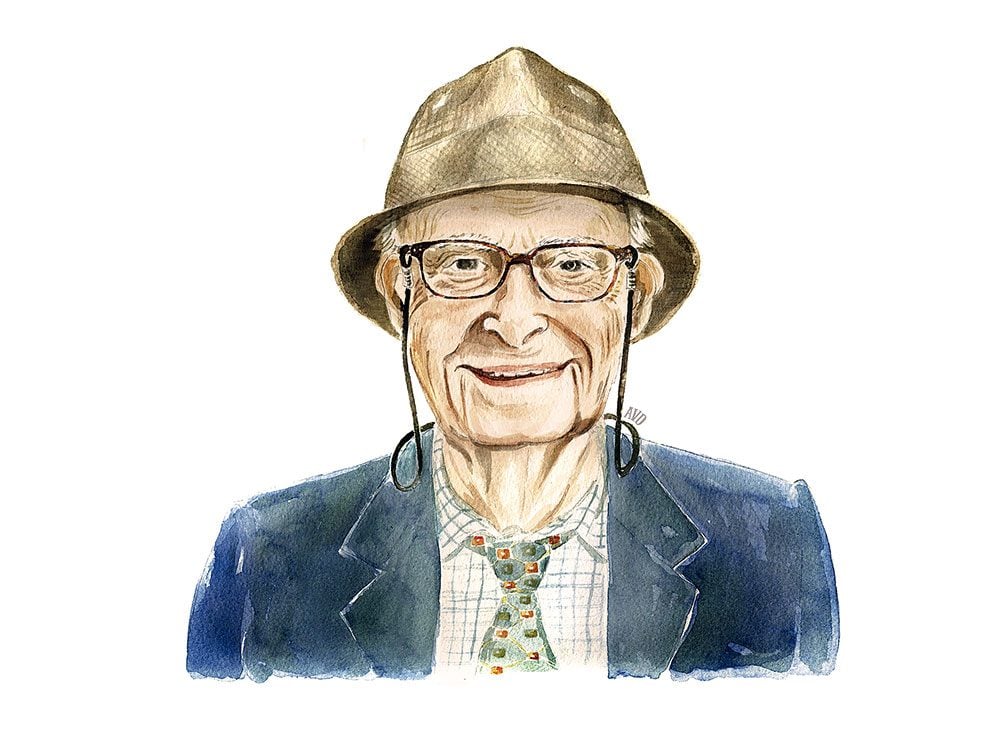15 Minutes with Harry Leslie Smith
Harry Leslie Smith, now well into his nineties, speaks about his second career as a political activist, protecting universal health care and caring for refugees.

In Conversation with Harry Leslie Smith, author of Don’t Let My Past Be Your Future
Reader’s Digest Canada: After decades of selling imported carpets, you’ve found a second vocation in your 90s as a political commentator—mostly looking back on times of great wealth disparity to warn us of the consequences of austerity and inadequate social supports. What inspired you to start writing?
Harry Leslie Smith: In 2008, the world’s economies crashed. And the following year my middle son, Peter, died at the age of 50. By 2010, my grief was uncontrollable and I knew the only way I could expiate it was through writing about my early life—in a book and also on social media. I needed to let people know that the economic and political storms coming our way, I’d seen them before.
In your new book, Don’t Let My Past Be Your Future, you express concern that in Britain, national health care is in danger. But as someone who has been based mainly in Canada since 1953, what’s your perspective on our coverage?
I am convinced it will not exist in 20 years. Not because it’s too costly but because the entitled, and the politicians who serve them, are too greedy. In Canada, universal health care does not cover prescription drugs or dental care. Only 30 per cent of Canadians can either afford or have the luxury of working for a company that provides health insurance. When I go into stores here staffed by workers earning minimum wage, their teeth remind me of those of the poor in 1930s England.
You’re prolific on Twitter, yet you caution against taking what appears on social media at face value.
Democracy has always been threatened by people interested in preserving their wealth or political influence at the expense of others. Now, social media allows them to spread false information with the speed of the plague. Quite frankly, unless we are willing to invest time in learning about the history of the 20th century and the many trials its people had to undergo, our democracies will not survive. Most of my generation left school at 14, but because our lives had been hard, we knew when someone was selling us a pile of garbage. Now people are willing to suspend their disbelief—and that must stop.
You’re currently crowd-funding to be able to tour refugee camps across Europe. What’s spurring you on?
I am a veteran of the Second World War, and at its end, I encountered long streams of refugees in Belgium, Holland and Germany—thousands of them moving away from their homes. It really hit me that these people, through no fault of their own, had found themselves suddenly destitute. But one thing pleased me, which was that British people built proper accommodations for them. I want to write a book inspired by that period.
You’ve already visited a number of present-day refugee camps. What insights have you gathered?
When I was in Calais [in northern France], I met two Sudanese men in their 20s who told me about life in their war-ravaged country. They had seen horrors and lived in sub-human conditions. Yet they weren’t jaded—and they believed the West would one day rescue them from the hell of refugee life. It made me remember that as long as there is life, there must be hope.
Don’t Let My Past Be Your Future is available now.
For another provocative discussion about global politics, read 15 Minutes with Carol Off!



